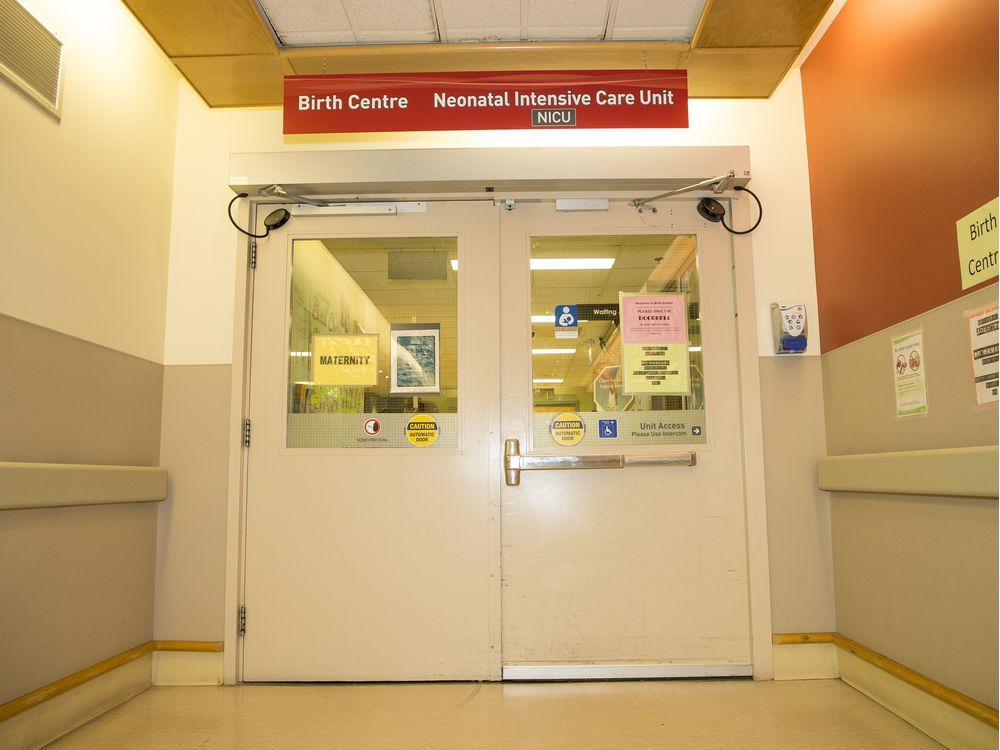Birth tourism needs to become an election issue, says president of Doctors of B.C.

Credit to Author: Pamela Fayerman| Date: Fri, 27 Sep 2019 10:00:24 +0000
Birth tourism needs to be curtailed by the federal government as the Canadian health care system is “struggling to meet the needs of our own citizens,” says Dr. Kathleen Ross, president of Doctors of B.C.
Births by non-residents seeking to get instant Canadian citizenship for newborns now accounts for about a quarter of all deliveries at Richmond Hospital, according to the latest federal data, but the issue is not getting any attention from political parties even with the federal election in full swing.
In the past six months, Ross has delivered two babies to birth tourists at Royal Columbian Hospital and in both cases, they left the hospital without paying her fees. Ross would not disclose which country the patients came from but said they have ignored multiple invoices sent “after the fact” to the addresses they supplied. The physician fee for vaginal deliveries ranges between $600 and $1,500.
Dr. Kathleen Ross, president of Doctors of B.C. Photo: Custom Photography
B.C. hospitals ask for deposits when non-residents register, $13,300 for a caesarean section and $8,200 for a vaginal delivery. But those fees are for hospital costs only and physicians who work on a fee for service basis, as do many of those who deliver babies, have great difficulty collecting their separate fees from birth tourists. Occasionally, hospital lawyers have to sue foreign patients in a bid to be paid.
Ross said it is clear that some birth tourists have “no intention” to pay their bills and doctors in many provinces are starting to talk about how to address the problems. She said the federal election campaign is a perfect time to start talking about the fact that if Canadian citizenship weren’t so easy to obtain in such a way, it is doubtful the numbers of birth tourists would be going up the way they are.
“We’re at a crisis, a tipping point, so it’s really important that some higher authority takes this on,” Ross said. “Hospitals and doctors have no option but to provide service. We can’t turn people away if they are sick, injured, or in labour.”
The federal Conservatives flirted with a potential clampdown on birth tourism in the past and the current Liberal government has said it was studying the matter, but no leader has commented during the current campaign about potential changes.
Data for the last fiscal year provided by the Canadian Institute for Health Information (CIHI) shows that eight of the top 10 most popular hospitals for non-resident births are in Ontario, with the other two in B.C. Births to non-resident mothers, a category which also includes international students and other non-permanent residents who are expected to pay for their medical and hospital services, are also growing in frequency in Alberta.
Across Canada, CIHI hospital discharge data shows there were 4,099 births to non-residents in 2018/19 (excluding Quebec), compared to 3,628 the year before. While the number has been increasing every year for the past decade at least, non-resident births still account for only about two per cent of all births in Canada.
However, at Richmond Hospital last year, they accounted for 23.1 per cent of all births and at St. Paul’s Hospital in downtown Vancouver, they accounted for 10.3 per cent of all births.
Andrew Griffith, a fellow at the Environics Institute and the Canadian Global Affairs Institute, said 454 non-resident women delivered babies at Richmond Hospital in 2018/19 and 139 women gave birth at St. Paul’s Hospital. And the number of babies may even be higher than the number of women because some deliveries involve multiple babies.
Griffith noted that across Canada, non-resident births rose 13 per cent in the last fiscal year, a rate that is higher than both immigration and overall population increases. The number of non-resident births in B.C. rose 3.3 per cent overall; at St. Paul’s, they rose by 12.9 per cent from 2017/18 to 2018/19 and at Richmond Hospital, the increase was 5.6 per cent. At one hospital in Ontario, the increase was as much as 49 per cent.
Griffith said it is too early to say whether Ontario and Alberta are going to supplant B.C. as the favoured destinations for birth tourism.
“In general, I prefer to have two years of data before knowing whether this is a shift or simply a one-year anomaly. But it is significant I think that Richmond seems to have stabilized,” he said, adding that it has traditionally accounted for nearly three-quarters of all non-residents births in B.C. Indeed, there are numerous websites marketing services to Chinese women and dozens of birth houses in Richmond, catering to the needs of women coming here to have their babies.
An Angus Reid poll done early this year showed that 64 per cent of Canadians were opposed to granting automatic Canadian citizenship to babies born to birth tourists and an almost equal proportion wanted to see laws changed.
Twitter: @MedicineMatters